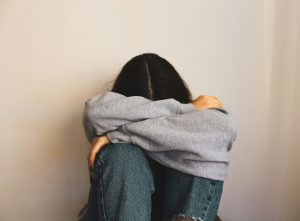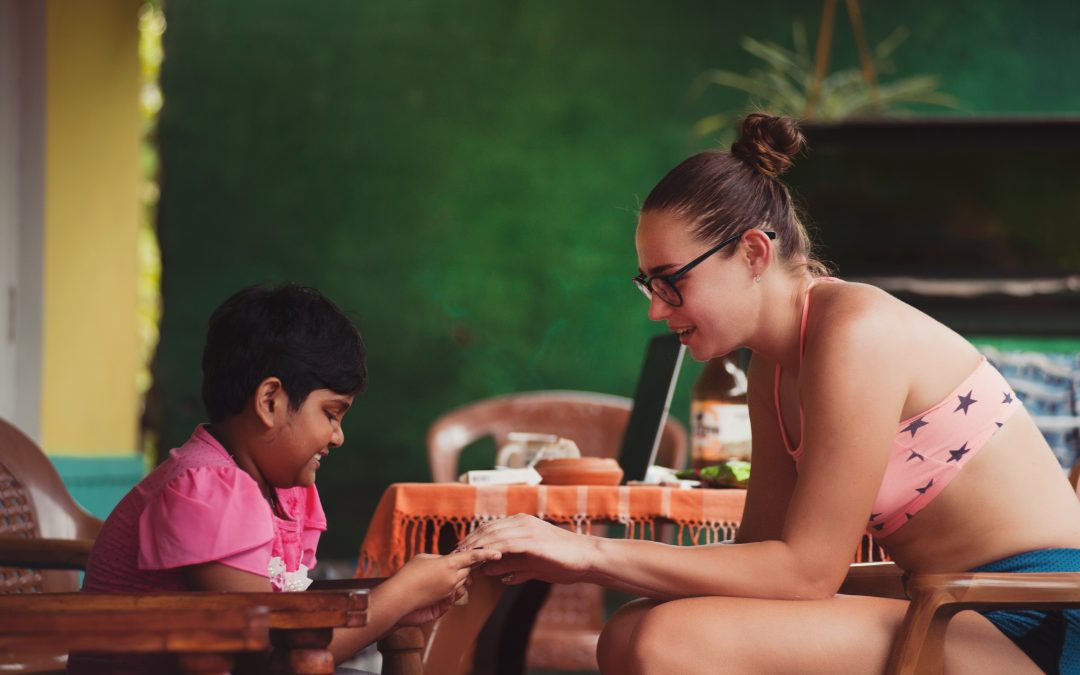My name is Elizabeth, and I am a survivor of sexual abuse and trauma. I endured things, terrible things when I was growing up. I was just a young sprout, but my lack of years and stature failed to tell everyone what I had already lived through and seen with my young eyes. The truth is that my parents and their friends hurt me in the most profound of ways. No one can ever make that hurt right because it happened to me and imprinted a scar so deep it is part of the essence of who I am. The abuse made me different because I had to try to survive in an environment no child should ever have to be exposed to. It broke me into thousands of pieces, and when I put myself together again, I had become someone new.
Survivors’ experiences are different, but there is one thing that we all feel and that is loneliness
Abuse and trauma within a family lead to more deep-rooted betrayal and issues that are just as terrible as the abuse itself. It almost always comes with deep-seated betrayal of trust, neglect, abandonment, and lies. The acts of abuse are covered up with a jumbled mess that becomes a reality for that child. Survivors’ experiences are different, but there is one thing that we all feel, and that is loneliness. We feel completely alone in the world, and that burden is like a choking desolation. Nobody wants us, and no one around us knows what is happening, even if we tell or act it out. That truth is desolating for a young child. Imagine never having a loving parent tucking you in at night when you might be scared of the dark. An abused child is deeply traumatized by the dark and agonizes about it every day because when that darkness arrives, so does the pain.

I was a stubborn and inquisitive kid who never settled for simple answers. I needed more to satisfy my quest for knowledge. I saw a world full of people and refused to believe that I was completely alone in the world. Somewhere out there was someone that I could connect with, and I kept searching for an alternative to mother. I craved that role model in my life and was driven by my need to be loved. I watched my friends’ parents, and most of the time, they terrified me, but it was my friends who helped restore my faith in some adults. With time, I saw glimmers of normal adults playing with their kids and showing them affection when I was in the same room. The more friends I had, the more they opened up a world to me that was not riddled with abuse. These glimmers of adults acting positively and lovingly restored my faith in humanity. As long as there were such people in this world, I would make it out alive.
The Importance of Role-Models
Children growing up need role models to help them make sense of the world. Role models give children an idol, someone to count on and guide them through life’s ups and downs. A child growing up in a loving family will automatically be exposed to how their parents treat them and behave around them. Don’t get me wrong, all families have their set of problems, but not all families are torn apart by abuse and trauma. If a child has never had a positive role model, they will grow up to be at a disadvantage in many developmental milestones, especially social skills. If your parents never hugged you, how can you know what a hug feels like? If your parents never talked to you, how can you develop speech patterns and convey meaning in language? An abused child misses out on so much.
Teachers are great role models and open up a world of education and experiences children cannot get from home. School trips are fun, and classrooms come alive in color and models during those early years. Where else can you be submerged in a community aside from an elementary school setting with hundreds of kids around the same age as you? Other kids are also great role models and show what to do in situations or what not to do in some cases. We learn a lot from one another as social creatures. We need each other to survive.
I decided that I could have more freedom when I disappeared
The media and TV have an abundance of role models as well. We are immersed in the internet, and social media culture, and everything trickles down to our kids. I couldn’t watch TV very much when I was growing up, but the few stolen minutes I could snatch here and there were important to me. Not all children are lucky to have access to the internet and media, but they will get exposure to these platforms through people. The media is everywhere. Music and videos are playing in malls, on billboards, and in advertisements all around us. We cannot help knowing what is happening because information is everywhere in the suburban world. What happens to the kids who live off the grid in trailer parks on the wrong side of the railway tracks? Trust me, they still know the latest news from words on the streets.
I knew very early on that I was unwanted and in the way. This treatment hurt, but that didn’t make it any less true. I decided that I could have more freedom when I disappeared, and as soon as I could get away, I would be out on the streets looking for role models who might want me. At that time, I was completely vulnerable. I met a lot of different people on the streets, but I was smart too and learned quickly to watch my six and not trust adults. My home life was worse than the streets, so I was not scared to be outside for hours. If it rained I went to someone’s house, hid under a bridge or in a tree. I was desperate for someone to notice me and maybe take me away, but I never found a magic family who wanted to adopt me. Instead, I got taken back to my traumatic situation every single time I stayed out too long.
Books were also my refuge as a kid. I devoured everything with print inside it and even found the Yellow Pages fascinating. Literature gave me an insight into many different worlds and scenarios. I grew up before the internet became affordable for everyone, and books were easy to borrow and return from the library. It was an easy way to gain insight into anything I wanted to know. I studied everything that came to my mind that I wanted to learn about because to ask my parents was not an option.
As an adolescent from an abusive home, I was the perfect target for drug dealers. I had already seen what drugs and alcohol did to people and wanted no part of that life. I preferred to stay hungry than break the law. I needed to get away permanently, not be thrown into jail. I chose my role models based on the person I saw myself becoming one day. I saw how the young lady always smiled at her customers at the food market and how it affected her sales. Grumpy Gus selling potatoes by grunting never attracted customers to linger and talk. It helped me make up my mind about the person I wanted to be. I took notice of the people in my world and picked the attributes that I liked. I tested those personality traits on people, and I discovered who I wanted to be. Those role models helped me put together my identity because I refused to be like the ones who had hurt me.
The main point of this article is to provide you with some insights into what it is like to grow up as an abused child and the importance of role models for such kids. If you have suffered from abuse and trauma, you know these kids exist, and you see them. They stick out like a red flag. It is hard to know how to help these kids apart from the obvious food and shelter. Most of the time, these kids just need hope. Hope that not everyone in this world is a monster who hurts others but that there is happiness and good in this world. That is the world we need to show our kids. A world that is wonderful and exciting. A world where everyone matters because you do. You do matter.
My name is Lizzy, and I survived.
Photo by Alexandr Podvalny on Unsplash
Guest Post Disclaimer: Any and all information shared in this guest blog post is intended for educational and informational purposes only. Nothing in this blog post, nor any content on CPTSDfoundation.org, is a supplement for or supersedes the relationship and direction of your medical or mental health providers. Thoughts, ideas, or opinions expressed by the writer of this guest blog post do not necessarily reflect those of CPTSD Foundation. For more information, see our Privacy Policy and Full Disclaimer.

For more about me: https://www.elizabethwoodsauthor.com
Elizabeth Woods grew up in a world of brutal sex offenders, murderers, and inconceivably neglectful adults. Elizabeth is passionate about spreading awareness of what it is like to survive after trauma. She is the author of several books and has written her memoir, telling her childhood story: The Sex-Offender’s Daughter: A True Story of Survival Against All Odds, available on Amazon Kindle and paperback.
Elizabeth is also the author of “Living with Complex PTSD” and the Cedar’s Port Fiction series: “Saving Joshua”, “Protecting Sarah”, “Guarding Noah” and “Bringing Back Faith,” and “Restoring Hope,” available here: https://www.amazon.com/stores/author/B0BCBZQN7L/allbooks?ingress=0&visitId=7e223b5b-1a29-45f0-ad9d-e9c8fdb59e9c&ref_=ap_rdr&ccs_id=931f96e2-c220-4765-acc8-cc99bb95e8bd





Could have been me. Mine wasn’t quite that bad, but I was also an undiagnosed autistic.